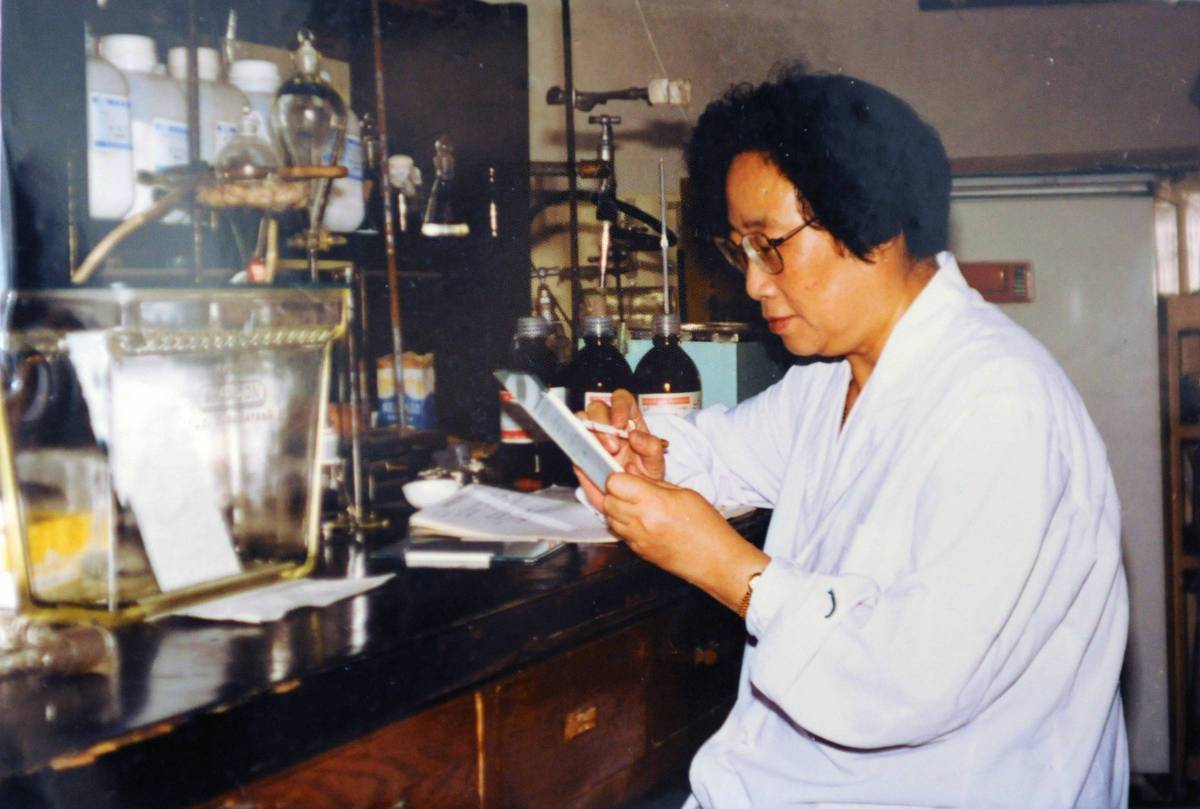Efforts being made to rid globe of malaria


Traditional Chinese medicine playing important role in eradicating parasite
When Chinese scientist and Nobel laureate Tu Youyou heard that the World Health Organization declared China free of malaria in June last year, she was thrilled. But her joy was quickly mixed with a sense of urgency and responsibility to rid more regions around the world of the contagious disease.
"She asked us immediately-how many countries have not eradicated malaria and how can Chinese researchers help them?" Yuan Yanan, Tu's secretary and an employee at the Chinese Academy of Chinese Medical Sciences, said during a recent interview.
When the COVID-19 outbreak began in late 2019, Yuan said Tu made a phone call to the academy, encouraging fellow researchers to tap into the potential of artemisinin and other traditional Chinese medicines in fighting the novel coronavirus.
Artemisinin, extracted from sweet wormwood, is the core compound of the most effective malaria-fighting drug known so far. Its discovery, led by Tu in 1972, has won her a number of honors, including a Nobel Prize in 2015.
Fifty years later, the verdant plant with a distinctive, bitter smell continues to enamor Tu and other scientists for its potential role in treating other illnesses. It has also become a symbol of TCM's contribution to global health.
Monday marked this year's World Malaria Day, and the International Forum on the 50th Anniversary of the Discovery of Artemisinin and on Building a Global Community of Health for All was held in Beijing.
In a congratulatory message sent to the event, President Xi Jinping said that by promoting the global use of artemisinin, China has helped save millions of lives worldwide and the country hopes to join efforts with the world to tackle global challenges together and build a global community of health for all.
The National Administration of Traditional Chinese Medicine also said in a meeting on Tuesday that artemisinin is emblematic of the innovative use of TCM for the benefit of all humankind.
More efforts will be devoted to clarifying the therapeutic effects and working mechanism of TCM treatment and promoting international exchange and foreign aid programs, according to a news release.
Senior officials with the administration visited Tu at her home on Monday. During the conversations, Tu said the incidence and mortality rates of malaria globally have both rebounded in recent years, underscoring the need for the global community to integrate anti-malaria resources to build a malaria-free world.
At 92 years old, Tu is unable to work from her office at the academy's Institute of Chinese Materia Medica regularly.
Liao Fulong, a researcher at the institute, said Tu keeps the habit of reading monthly briefs on their research work and often offers her opinions on key projects.
"To this day, we feel that it is still artemisinin that she is the most interested in," he said.
Scientists at the institute said that problems such as how artemisinin exerts effects on human bodies, how to tackle drug resistance and whether artemisinin can be effective at treating other diseases, are some of the focal points of their research.
Liao said a mid-stage clinical trial using a type of artemisinin derivative to cure lupus is underway, with results being expected in September.
"Some preliminary research has also shown that the substance can kill the bacteria that causes tuberculosis, suggesting that it could be applied in more fields," he said.
Liao added that the institute in recent years has been researching treatment for malignant malaria commonly seen in Africa.
Yuan Yanan, the secretary, said, "As Tu often says, artemisinin is indeed a gift given by China to the world."
- China planning to raise age limit for blood donors, shorten the minimum interval
- Breakthrough in BMI tech aids patients
- Chinese technique for making ultrathin metal films named top 10 scientific breakthroughs
- Former senior political advisor of Sichuan sentenced to 14 years
- Beijing has undergone dramatic improvements since 2017's revamped development plans
- AI open alliance launched to pool resources for innovation and application





































